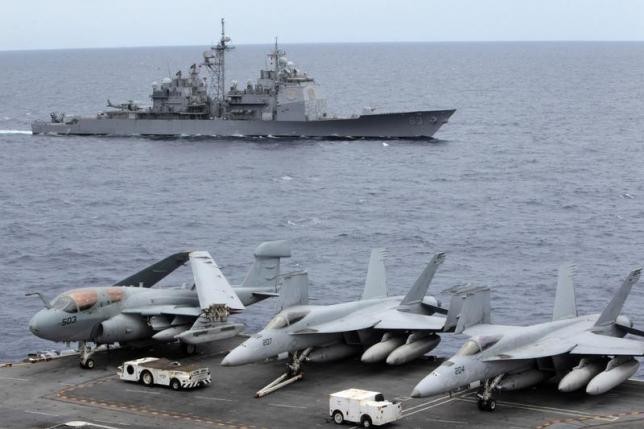Following the confirmed encounter with a U.S. Navy EP-3 spy plane near Hainan Island earlier this week, China has called on the United States on Thursday, May 19, to "immediately stop close-in reconnaissance actions” in the area.
China Daily reported that spy flights conducted in the past have resulted in clashes, which also affected the relationship between the two countries.
The report said that the collision in 2001 between a Chinese PLA Navy J-8 fighter jet and a U.S. Navy EP-3 spy plane near Hainan Island had resulted in the death of Chinese pilot Wang Wei.
A Reuters report quoted a Pentagon statement released on Wednesday, May 18, which claimed that the two Chinese fighter jets made an "unsafe" intercept of a U.S. military reconnaissance aircraft over the South China Sea on Tuesday, May 17.
"We have information from the departments concerned, and what the U.S. side has said is untrue," Foreign Ministry spokesman Hong Lei said on Thursday, May 19.
According to Hong, the two Chinese military airplanes "followed and monitored it in accordance with laws and regulations" and "maintained a safe distance" from it, referring to the U.S. plane that conducted a close-in reconnaissance on Tuesday, May 17.
"China's operations subscribed to professional and security standards," he added.
"The U.S. military warships and aircraft have conducted close-in reconnaissance with high frequency for a long time, posing a serious threat to China's maritime and airspace security," Hong said.
U.S. military presence in the South China Sea is seen to continue in the future to keep political pressure on China and enhance U.S. strategy in the region, observers said.
While it is part of the U.S. to keep tension in the region, it is a natural reaction for Chinese forces to verify and identify approaching U.S. planes and warships, according to Zhang Junshe, a senior researcher at the PLA Naval Military Studies Research Institute.
"But the U.S. has preferred blaming its provoked targets before the targets publicly react, and the U.S. aircraft pilots tend to impose belligerence," Zhang said. "Such spy flights are one of the root causes of danger."
Meanwhile, Zhao Xiaozhuo, a researcher at the Center on China-America Defense Relations at the PLA Academy of Military Science, said it would take a long time for the two countries to tackle the security issues.
"The U.S. toughness militarily is backed by domestic public opinion and congressional voices," Zhao noted.



























